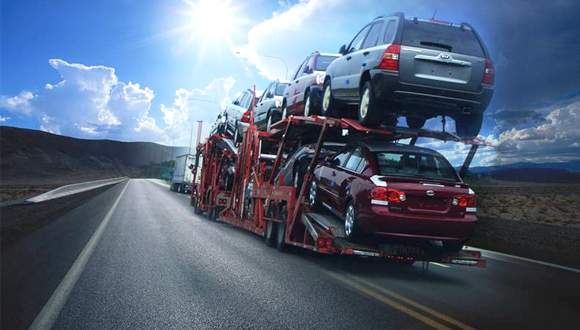If you’re moving to a new place, it’s crucial to have a budget in mind. It’s no secret that moving can be expensive. These expenses can quickly add up, from purchasing the packing supplies to looking for cheap car shipping and hiring professional movers. And if you don’t plan, you can spend more than you planned. Here are five reasons why you need to have a budget when moving:
1. Moving Is Expensive
Table of Contents
Moving is expensive. That’s just a fact of life. But there are ways to minimize the cost impact of a move and even save money in the long run. For example, hiring a professional moving company can be pricey. Still, it’s often worth the investment to avoid damaging your belongings or incurring hidden costs. And while buying new furniture may seem like a splurge, it’s more cost-effective than bringing your old furniture with you in many cases. So, while moving can be costly, there are ways to make it work for your budget. With some planning and careful spending, you can make your next move without breaking the bank.
2. A Budget Will Help You Avoid Overspending
Moving to a new home is an exciting time, but it can also be a costly endeavor. Between the cost of renting a moving truck, paying for professional movers, and purchasing new furniture and appliances, it’s easy to blow through your savings quickly. That’s why it’s so essential to create a budget before you start packing up your things. Having a budget will help you stay on track and avoid overspending. Make sure to include all of your anticipated expenses, such as the cost of renting a storage unit. Once you have a budget in place, stick to it as much as possible. With a little bit of planning and discipline, you can avoid financial stress during your move.
3. It’ll Be Easier to Save for Your Move If You Have a Budget in Place
Whether you’re moving across the country or just across town, one thing is for sure—it’s not going to be cheap. In addition to the cost of renting a truck or hiring movers, there are also several other expenses to consider, such as utility deposits, first month’s rent, and hook-up fees. With so many moving parts (pun intended), it’s easy to let your spending get out of control. That’s why it’s crucial to have a budget before you start packing boxes. By figuring out how much you can realistically afford to spend on your move, you’ll be in a better position to make smart financial decisions and avoid overspending.
4. You’ll Be Able to Better Plan for Your New Home

Moving to a new home is an exciting time. It’s a chance to start fresh and create a space that reflects your unique style. But before you start shopping for furniture and paint swatches, it’s essential to take a step back and consider your budget. How much money do you have to work with? What are your must-haves, and what can you live without? By getting a clear picture of your finances, you’ll be better able to plan for your new home and make the right decisions.
5. Having a Budget Will Help Keep Things Organized
Moving to a new home is a big undertaking, and there are many things to think about. A critical aspect of the move is ensuring that your finances are in order. Having a budget will help you keep track of your spending and ensure you have enough money to cover all your expenses. A budget will also help you avoid overspending on items you don’t really need. In addition, having a budget will help ease the stress of moving by ensuring that you are prepared financially for the transition. So, if you’re thinking about moving, be sure to create a budget and stick to it. This will help make the process less stressful and more organized.
How to Create a Moving Budget
Now that you know the importance of having a budget when moving, it’s time to create your own. Here are a few tips to get you started:
Calculate Your Moving Costs
Before you move, it’s critical to calculate the costs of the move so that you can stay within your budget. One cost that is often overlooked is the cost of packing materials. Boxes, tape, and bubble wrap can add up quickly. Another cost to consider is the cost of hiring a moving company. If you are moving a long distance, hiring professional movers may be worth the investment. Finally, don’t forget to factor in the cost of food and lodging if you are traveling to your new home. By taking the time to calculate all your moving costs in advance, you can avoid any unwanted surprises down the road.
Plan for Unexpected Expenses
When moving, you’ll often stumble into unexpected expenses that can add up quickly. To avoid being caught off guard, it is important to plan for these potential costs. For example, many people don’t realize that they will need to purchase new items for their new home, such as window treatments or light fixtures. In addition, you may need to pay for temporary housing or storage if you are moving long-distance. By being prepared for these additional costs, you can ensure that your move is as smooth and stress-free as possible.
Set a Budget and Stick to It
Make a list of all the necessary expenses, such as renting a truck, hiring movers, and buying boxes. Once you estimate the total cost, start setting aside money each week or month to reach your goal. When it comes time to move, stick to your budget as much as possible. If you go over budget, look for ways to cut costs, such as borrowing boxes from friends or family. By being mindful of your moving expenses, you can avoid financial stress.
The Bottom Line
Moving can be a costly endeavor, but you can ensure that your move is affordable by creating a budget and sticking to it. By planning, you can save yourself money and stress in the long run. So, if you’re planning on moving soon, be sure to create a budget and follow these tips.
Image Source: BigStockPhoto.com (Licensed)
Site Disclaimer
The Content in this post and on this site is for informational and entertainment purposes only. You should not construe any such information or other material as legal, tax, investment, financial, or other advice. Nothing contained on our Site constitutes a solicitation, recommendation, endorsement, or offer by HII or any third party service provider to buy or sell any securities or other financial instruments.
Nothing in this post or on this site constitutes professional and/or financial advice. You alone assume the sole responsibility of evaluating the merits and risks associated with the use of any information or other content in this post or on this site.
You recognize that when making investments, an investor may get back less than the amount invested. Information on past performance, where given, is not necessarily a guide to future performance.
Related Categories: Home, Cars & Vehicles, Reviews






